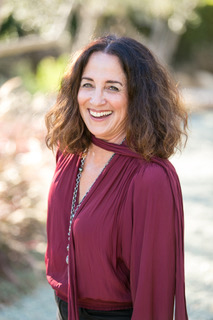For those of us who are high risk and still at home, we’re headed into month four of the quarantine. While we might have initially welcomed the time off work to regroup, many of us are realizing that we’re witnessing a “new norm.” Along with this realization, we’re also wondering what the future will look like for our children and grandchildren. No doubt we all have different challenges these days, but in general, those who adapt well to change might be coping better. Those who are used to spending time alone or who work from home also might be having an easier time.
In a broad sense, many of us are shifting from a sense of despair to one of acceptance, much in the same way we deal with the loss of a loved one. Obviously, navigating difficult times isn’t new, but each lived experience is different and brings along with it a different set of challenges. There’s been much written about this in the literature, but there are two individuals who have brought a lot of wisdom to the subject: Thich Nhat Hanh and the late Viktor Frankl.
In his newly translated book Yes to Life: In Spite of Everything, Viktor Frankl, who is also the author of Man’s Search for Meaning, brings us a timely perspective. Frankl coined the term logotherapy, which was formulated on the premise that we’re motivated by a sense of purpose. Yes to Life has so many applications, whether reading it to help deal with a pandemic, a state of war, a natural disaster, or any other human experience. Frank was both a psychiatrist and a Holocaust survivor, and after being in the concentration camps, he understood that having a passion was the key to his own survival.
Our lives, he contended, constantly pose questions about our life’s meaning. He said, “What we ’radiate’ into the world, the ‘waves’ that emanate from our being, that is what will remain of us when our being itself has long passed away” (p. 45). He continued by saying that if life has a meaning, then suffering has a meaning, but that lends itself to a completely other discussion, touching on the subject that “from all bad comes good.”
In considering this concept, I’d like to mention Thich Nhat Hanh’s book No Mud, No Lotus, which advocates the idea that we would not know the light if we did not experience the darkness. Many of us feel overwhelmed right now as the COVID-19 cases increase as a result of more states opening up too early. Much of what we’re witnessing is darkness now, and spiritual leaders are telling us that there’s a reason for this. Perhaps humans need a reset at times. Even if we don’t believe in the spiritual and astrological implications of the pandemic, we can still view it as an opportunity for growth, transformation, and expansion. It’s a time when we’re left to consider what’s important to us. What feeds and nurtures us are all part of the discussion. Thich Nhat Hanh wisely says, “If you know how to make good use of the mud, you can grow beautiful lotuses. If you know how to make good use of suffering, you can produce happiness. We do need some suffering to make happiness possible” (p. 14).
Another element of his message is the importance of coming together as a community or society in order to heal. We are all in this pandemic together; it crosses all cultural boundaries and belief systems. Outside of physical limitations and those who are in the high-risk category, the virus isn’t selective. Thich Nhat Hanh believes in collective action, whether it’s practicing mindfulness or taking advantage of technological connections through video chats and phone calls. He says that this sense of interconnectedness seems to lessen the suffering in the world.
The overall feeling is that everything is changing as we knew it, and we’re shifting from a more fearful energy level to a more compassionate and collaborative one, as an array of emotions are emerging from different angles. It’s all a reminder of how intertwined we all are.
So perhaps now is the time to reach out and call someone who you haven’t spoken with in a while. Chances are it will be nurturing for both of you!
References
Frankl, V. (2020). Yes to Life: In Spite of Everything. Boston, MA: Beacon Press.
Hanh, T.N (2014). No Mud, No Lotus. Boston, MA: Shambala.


